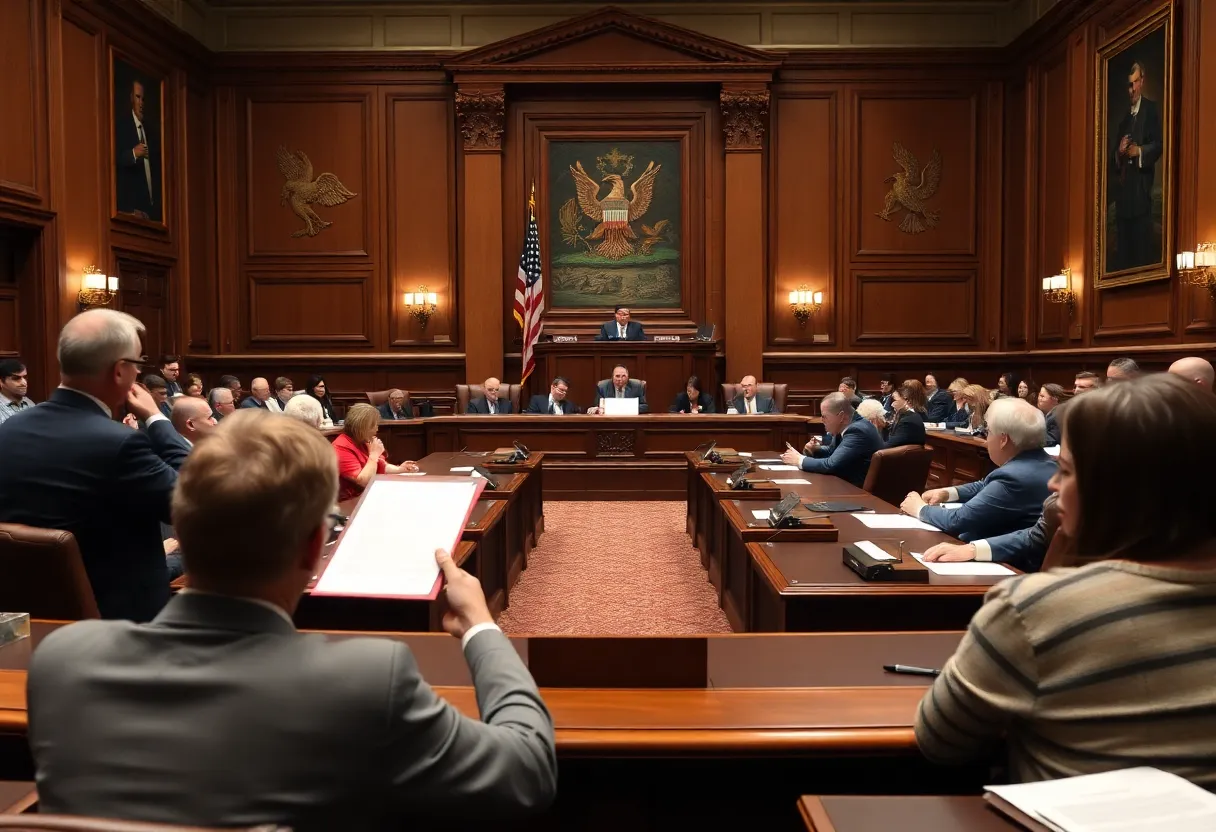California, September 1, 2025
News Summary
The California Senate has approved Senate Bill 690 (SB 690) aimed at limiting lawsuits against businesses arising from the California Invasion of Privacy Act (CIPA). Effective after further discussion in the Assembly, the bill exempts specific commercial uses of tracking technologies, including cookies, thus shielding small and medium-sized enterprises from potential legal claims. With a unanimous Senate vote of 35-0, SB 690 seeks to provide legal clarity and reduce the financial burden posed by predatory litigation while ensuring consumer privacy.
California Senate Passes SB 690 to Limit Abuse of CIPA Lawsuits Against Online Businesses
California businesses are facing an alarming rise in lawsuits stemming from the California Invasion of Privacy Act (CIPA) relating to online tracking technologies. In response, the California Senate has passed Senate Bill 690 (SB 690), aiming to mitigate these lawsuits and provide relief for small and medium-sized enterprises.
SB 690 received unanimous approval in the Senate with a vote of 35-0 on June 3, 2025, and is currently pending further discussion in the Assembly. The bill seeks to exempt certain commercial uses of cookies and other tracking technologies from CIPA liability, helping to shield businesses from potentially devastating legal claims.
The California Invasion of Privacy Act is primarily a wiretap statute that prohibits the interception of electronic communications without consent. However, California lawyers have been asserting that the use of tracking technologies, such as cookies, Meta Pixel, Google Analytics, and LinkedIn Insight, constitutes a violation of CIPA. They argue tracking technologies can intercept electronic communications between websites and their visitors, which includes sensitive actions like clicks and keystrokes.
These lawsuits predominantly target small and medium-sized businesses rather than large technology providers, as going after bigger companies would incur expensive litigation costs and risks setting unfavorable legal precedents regarding CIPA’s applicability. The threat of class-action claims, which can lead to statutory damages of up to $5,000 per website visit, places significant financial pressure on businesses. Settlements often range from $50,000 to $200,000, making it financially advantageous for many businesses to settle rather than fight in court.
A recent legal decision has clarified the potential liabilities associated with CIPA violations. In Torres v. Prudential Financial, Inc., the U.S. District Court for the Northern District of California determined that mere data collection does not automatically violate CIPA unless there is evidence that a party read or attempted to read the contents of a user’s communication while it was being transmitted. This ruling has provided some relief yet did not alleviate the wave of lawsuits against businesses.
Senate Bill 690 seeks to address these challenges by offering a clearer framework for businesses. The legislation aims to prevent private lawsuits related to the processing of personal information for commercial purposes. This will effectively eliminate many claims tied to online activities under CIPA. The bill defines “commercial business purpose” in alignment with existing regulations under the California Consumer Privacy Act (CCPA) and the California Privacy Rights Act (CPRA).
SB 690 is designed to restore legal certainty for businesses, enabling them to prioritize compliance with privacy regulations instead of continuously defending against litigation. Notably, the legislation does not include a retroactive provision, meaning it will apply only to future cases and will not impact those already pending.
Ultimately, the goal of SB 690 is to harmonize California’s privacy laws, minimizing the burden on businesses from predatory litigation practices while ensuring that consumer privacy is still respected and upheld.
Frequently Asked Questions
What is SB 690?
SB 690 is a bill passed by the California Senate aimed at limiting the lawsuits against businesses for violating the California Invasion of Privacy Act (CIPA) related to the use of online tracking technologies.
How does SB 690 protect businesses?
The bill exempts certain commercial uses of cookies and tracking technologies from CIPA liability, which helps reduce the number of lawsuits filed against small and mid-sized businesses.
What are the implications of the recent court ruling in Torres v. Prudential Financial, Inc.?
The ruling clarified that simply collecting data does not constitute a CIPA violation unless it can be proven that communications were read while in transit, providing businesses with some legal protection.
Chart: Key Features of California Senate Bill 690
| Feature | Description |
|---|---|
| Bill Number | SB 690 |
| Purpose | Limit abuse of CIPA lawsuits against businesses |
| Vote Outcome | 35-0 in favor |
| Key Exemption | For commercial use of cookies and tracking technologies |
| Impact on Pending Cases | Does not apply retroactively |
Deeper Dive: News & Info About This Topic
- National Law Review: California’s SB 690 Passes
- Wikipedia: California Invasion of Privacy Act
- Crowell: Privacy Plaintiffs Test Theories
- Google Search: California Invasion of Privacy Act
- Daily Journal: Beginning of the End for CIPA Litigation
- Encyclopedia Britannica: Privacy Law
- JD Supra: Federal Judge Denies CIPA Lawsuit
- Google News: CIPA Lawsuits

Author: STAFF HERE COSTA MESA WRITER
The COSTA MESA STAFF WRITER represents the experienced team at HERECostaMesa.com, your go-to source for actionable local news and information in Costa Mesa, Orange County, and beyond. Specializing in "news you can use," we cover essential topics like product reviews for personal and business needs, local business directories, politics, real estate trends, neighborhood insights, and state news affecting the area—with deep expertise drawn from years of dedicated reporting and strong community input, including local press releases and business updates. We deliver top reporting on high-value events such as the OC Fair, Concerts in the Park, and Fish Fry. Our coverage extends to key organizations like the Costa Mesa Chamber of Commerce and Boys & Girls Clubs of Central Orange Coast, plus leading businesses in retail, fashion, and technology that power the local economy such as Vans, Experian, and South Coast Plaza. As part of the broader HERE network, including HEREAnaheim.com, HEREBeverlyHills.com, HERECoronado.com, HEREHollywood.com, HEREHuntingtonBeach.com, HERELongBeach.com, HERELosAngeles.com, HEREMissionViejo.com, HERESanDiego.com, and HERESantaAna.com, we provide comprehensive, credible insights into California's dynamic landscape.


